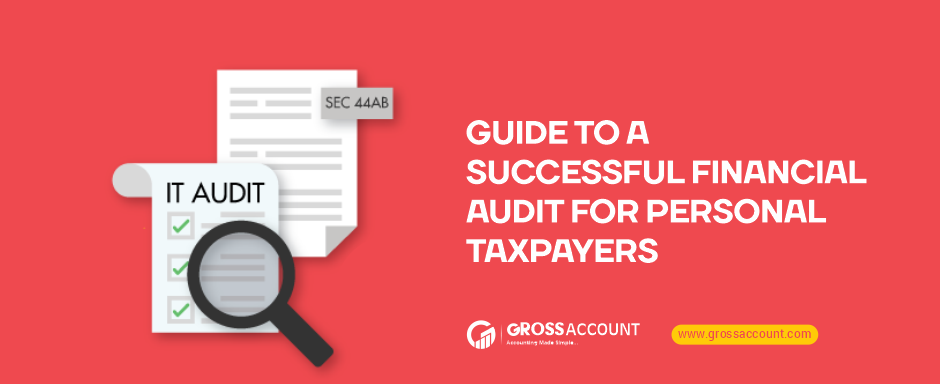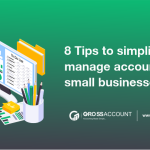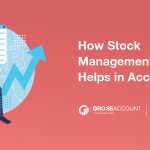Introduction
Financial analysis is one of the main reasons why year-end reporting can be stressful. However, these reviews make you a reliable company in the eyes of banks, government agencies, and shareholders. Generally, a financial audit involves examining a company’s financial statements and related documents to ensure they are correct. It is done every year and aims to check the financial health of the company. This can be done by analyzing its accounting system, internal controls, and other financial details. The main purpose of the audit is to express an opinion on whether the business has been able to keep good accounting records or not.
Some tips for a successful financial audit
You need to plan ahead
You need to spend more time preparing for the exam and spending time on the exam. Also, let’s get involved in the research process. Always remember that good planning and clear expectations will help reduce stress and frustration. At the same time, by updating the program during the year, you can reduce the time of year-end exam preparation. It is also important to designate someone within your company’s finance department as a single point of contact for independent auditors. Remember to maintain regular communication between the organization and the independent auditors throughout the year. It is better to do this than to wait for the research to start a new conversation or a new business. This will reduce surprises and enable the organization to make appropriate plans or necessary changes.
Make A Plan For Audit
The first reason why professionals worry about financial analysis is that they don’t have enough time. Planning ahead sets clear expectations, reducing frustration and stress. You can have an expert do the work for you so that you can focus on other areas of your business because if you don’t, you will spend more time preparing for the audit, available on time. research. , and follow everyone involved in the process.
However, when it comes to planning and preparation, you should treat it as a deep process. To reduce the stress associated with year-end exams, it’s best to keep changes and schedules throughout the year. There should be a single point of contact with independent auditors. Select one active member of your finance team to maintain communication with auditors throughout the year rather than waiting until the last moment.
Ensuring effective communication should keep you informed of any changes and updates to policies and regulations, thus avoiding the risk of unnecessary surprises. You will have plenty of time to make the necessary changes before the exam date. It is recommended that there be two points of contact with the researchers so that the process does not stop when the main point is not available.
Take care of mistakes in Past Edits
One of the easiest ways to achieve a successful, stress-free financial analysis is to learn from past mistakes. Review the difficulties encountered in previous audits, changes made in previous years’ audits, and any internal control recommendations. This is useful information that will make your life easier. Once you have identified a list of past issues, prepare a plan that makes it clear how they will be resolved. Even if some of the past problems have already been solved, this will be a reminder and ensure that the past is not repeated.
In addition, during planning meetings with auditors, you should not only discuss areas for improvement but also how to make effective communication between the company and auditors.
Be notified of updates on accounting standards
Your next financial review will take into account the latest accounting standards and any updates to legal and regulatory requirements. Not keeping this in mind can cause serious problems during the financial analysis. While some updates require small changes, others may require a long time to make important changes. For example, new tax laws or accounting regulations may require you to organize books or charts of accounts and track and manage data differently. Your financial advisors or accounting staff may need training or software to meet the new requirements. To read and understand the latest updates on accounting standards and policies in the upcoming year-end review, visit fasb.org – the website of the Accounting Standards Board. If you are a tax-exempt organization, the IRS platform is also useful.
Analyze the results of the analysis of changes in business activities
Financial rules, regulations, and requirements may vary depending on the nature of your business activity. It is your responsibility to study any research changes or additions to your business. You may have launched a new program or discontinued a product that may result in increased or decreased performance.
New grant approvals, changes in your company’s organizational and management systems, or new internal control systems may require new reporting and accounting audits that should be disclosed to the auditor during the process.
Organize the data
There must be a secure way to store the research data available for analysis in the following years. An effective way is to organize data using folders for scripts or business processes. Classification of data into groups such as accounts payable and expenses, income, fixed assets, income, debt receipts, debts, investments, etc. is also very useful.
For maximum accuracy, consider using financial, expense, and retention records and external secured records. For example, you can use internal purchasing records to purchase receipts sent by vendors for each month.
However, be sure to save workbooks and schedules that contain sensitive information with a password-protected solution or store them in an appropriate network location. Look for accounting packages that automatically generate documents and schedules when you use them to write new reports.
Assign tasks and establish a schedule
First, you must be completely clear about the financial information required by the auditors. In complex matters, seek clarification before the investigation to avoid delay and other costs. You will feel comfortable asking questions, seeking clarification, and seeking help from the audience. They are often happy to answer questions about accounting procedures related to infrequent or unusual transactions. Get detailed information about the preparation of footnotes, which explain the financial aspects important to auditors. They may include accounting plans such as the method of amortization used, pending litigation, bad things and promises, confusing transactions, and other things related to the statement. Once you know exactly what the reviewers want, assign each item on the list of worksheets, schedules, and statements to someone to review, and give them a due date.
When assigning tasks to employees, give them plenty of time to review and correct any errors they may identify. If possible, start with the most difficult, time-consuming, and complex data. In any case, all financial statements, schedules, and workbooks must be submitted for audit no later than the audit date.
Do your own research
You should not jump into the analysis after you have completed the closing entries and reconciled your trial balance numbers with the balance sheet numbers. An important step before the final audit is to look back and review the financial statements. A great idea is to have a checklist of information that is required to be disclosed to ensure that all information in the accounts and notes to the financial statements is disclosed. You will also be able to explain the differences in income from previous years and the financial statements.
Assist the Auditors on the day of the Auditors
Although auditors have already requested all the required information in advance, they may still require explanations and supporting documents for specific information disclosed in the financial statements during fieldwork. Therefore, your chief financial officer and accounting staff should be ready to go and provide whatever information they need. Your employees should not have time off during critical review periods, and any non-essential meetings involving chief accountants and finance personnel should be rescheduled or rescheduled. To follow the progress during the research, you can have a short meeting with the researchers to get a list of the open items.
Conclusion
At last in the final, I like to say that your financial expenses are in your hand. In short, no established business can escape a financial audit, but there are ways to make the process easier at the start of the next fiscal year. You need to spend enough time preparing for the year-end audit. Your ability to analyze a lot of data during preparation, such as past mistakes and recommendations will help you improve reporting practices.
In addition to this, it is also important that you follow the latest accounting standards and understand how major changes in your business activities affect audit requirements. Your auditors can be very helpful as you monitor these changes and any unusual transactions you may report. Finally, you should actively assist the researchers during the research process and review the results afterward. By following the steps mentioned above, you will stay on top of your financial analysis.






